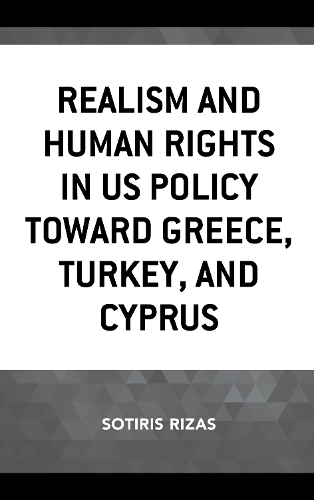
Realism and Human Rights in US Policy toward Greece, Turkey, and Cyprus
(Hardback)
Publishing Details
Realism and Human Rights in US Policy toward Greece, Turkey, and Cyprus
By (Author) Sotiris Rizas
Bloomsbury Publishing PLC
Lexington Books
15th October 2018
United States
Classifications
Professional and Scholarly
Non Fiction
Politics and government
327.73049509045
Physical Properties
Hardback
196
Width 160mm, Height 232mm, Spine 21mm
467g
Description
The theme of this book is the interplay between Realism and Human Rights in the formulation of US policy towards Greece and Turkey with respect to the Cyprus and the Aegean disputes and the domestic politics of the two countries from the Truman to the Carter administration. The policies of successive administrations, and those of Johnson and Nixon in the 1960s and 1970s, were formulated upon the requirements of containment as this was conceived in 1946-47 by the Truman administration. Realpolitik dominated the agenda and issues related to values and norms were secondary although not unimportant. Whenever a choice had to be made between realpolitik and human rights the former was the main consideration of American policy-makers. Although committed to the recalibration of US foreign policy toward human rights, the Carter administration did not depart from these premises in the formulation of its policy in the Eastern Mediterranean.
Reviews
Americas Cold War strategists responded to Moscows perceived aggression with hard power and global alliances while also advocating loftier goals such as democratic values and human rights. In his impressively researched, balanced and persuasive study Rizas examines Washingtons policy priorities toward Greece and Turkey as they fluctuated between realpolitik and liberalizing principles. Plagued by domestic instability and divided by age-old hatreds and conflicts over the Aegean and Cyprus, Athens and Ankara resisted prodding to democratize their regimes. In turn, Washington concentrated on power politics and security issues while seeking to preserve NATOs atrophic Balkan front. -- John O. Iatrides, Southern Connecticut State University
I strongly endorse Sotiris Rizas' latest book. He has a wonderful ability to view events objectively, with total respect for the variety of available sources. He is at the peak of his career and I feel fortunate to have been reading his works over the years. -- Theodore Couloumbis, professor emeritus, University of Athens
Author Bio
Sotiris Rizas is director of research at the Modern Greek History Research Centre /Academy of Athens.
